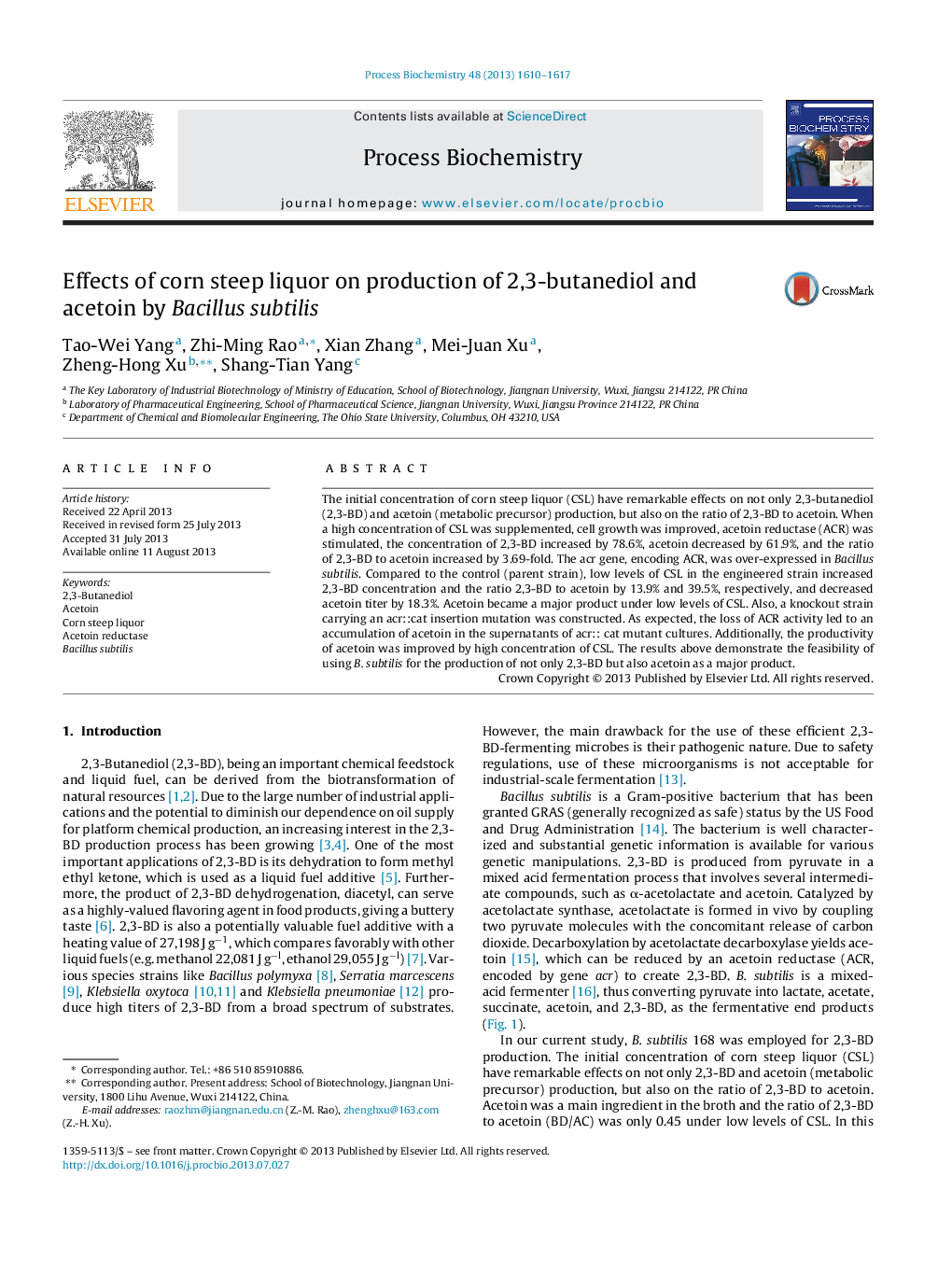| Article ID | Journal | Published Year | Pages | File Type |
|---|---|---|---|---|
| 34591 | Process Biochemistry | 2013 | 8 Pages |
•Acetoin was a main ingredient under low corn steep liquor (CSL) levels.•2,3-BD became a major product under high CSL levels.•Overexpression of acetoin reductase reduced CSL supplement for 2,3-BD production.•CSL enhanced acetoin production with acr::cat mutant strain.
The initial concentration of corn steep liquor (CSL) have remarkable effects on not only 2,3-butanediol (2,3-BD) and acetoin (metabolic precursor) production, but also on the ratio of 2,3-BD to acetoin. When a high concentration of CSL was supplemented, cell growth was improved, acetoin reductase (ACR) was stimulated, the concentration of 2,3-BD increased by 78.6%, acetoin decreased by 61.9%, and the ratio of 2,3-BD to acetoin increased by 3.69-fold. The acr gene, encoding ACR, was over-expressed in Bacillus subtilis. Compared to the control (parent strain), low levels of CSL in the engineered strain increased 2,3-BD concentration and the ratio 2,3-BD to acetoin by 13.9% and 39.5%, respectively, and decreased acetoin titer by 18.3%. Acetoin became a major product under low levels of CSL. Also, a knockout strain carrying an acr::cat insertion mutation was constructed. As expected, the loss of ACR activity led to an accumulation of acetoin in the supernatants of acr:: cat mutant cultures. Additionally, the productivity of acetoin was improved by high concentration of CSL. The results above demonstrate the feasibility of using B. subtilis for the production of not only 2,3-BD but also acetoin as a major product.
